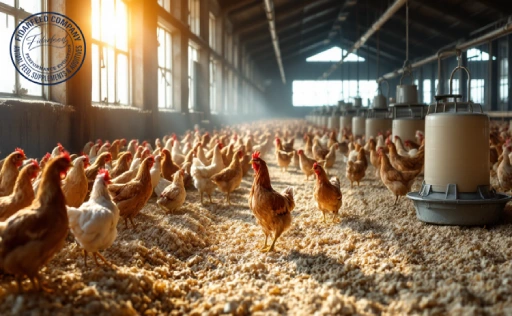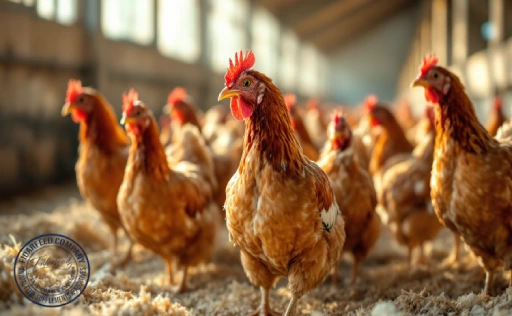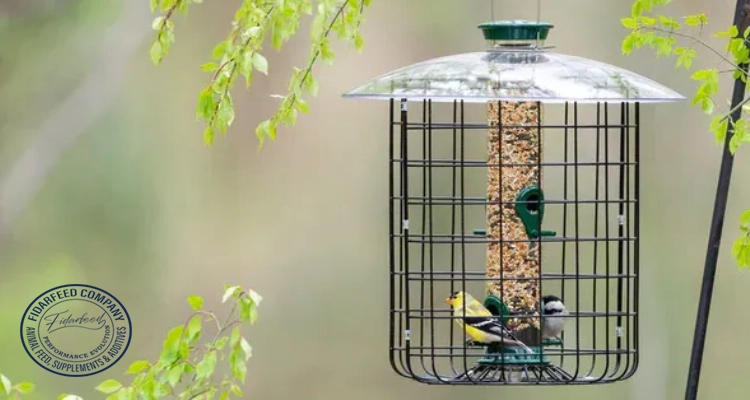
Probiotic Caged Birds are transforming the way breeders and bird lovers care for their feathered companions. As more people discover the powerful link between gut health and overall wellness in birds, probiotics have become a must-have in daily bird care routines. Whether you’re a hobbyist with a few songbirds or a professional breeder managing an entire aviary, learning how probiotics support digestion, immunity, and breeding success can make a real difference. Keep reading to find out how these tiny microbes can lead to happier, healthier birds.
What Are Probiotic Caged Birds and Why Do They Matter?
Probiotic caged birds are simply birds that receive probiotics as a part of their daily diet. Probiotics are live, beneficial microorganisms—mainly bacteria and yeasts—that help maintain a healthy balance of gut flora. Just like in humans, a bird’s gut plays a critical role in overall health. From digesting food to defending against harmful pathogens, the gut is the frontline of a bird’s immune system.
Learn more about: Synbiotic Supplement for Birds
When birds are raised in captivity—especially in enclosed cages or aviaries—they are often exposed to environmental stressors, limited diet variety, and reduced microbial diversity. These factors can weaken their immune response and make them more vulnerable to disease. Supplementing with probiotics helps rebalance their internal ecosystem, promoting resilience and well-being.
Top Benefits of Probiotics for Caged Birds
Giving probiotics to your caged birds can unlock a wide range of benefits:
-
Better digestion: Probiotics aid in the breakdown of food, increasing nutrient absorption. Birds with healthier guts can gain more value from the same feed.
-
Stronger immunity: A balanced microbiome boosts the bird’s natural defense system, reducing the need for antibiotics.
-
Improved energy and vitality: Birds receiving probiotics often exhibit more liveliness, improved singing, and better overall behavior.
-
Healthier feathers: A shiny, vibrant plumage is often one of the first visual signs that a bird is thriving on a probiotic-supported diet.
For example, a study published in Veterinary Microbiology in 2021 found that birds supplemented with Lactobacillus acidophilus showed significantly lower rates of gastrointestinal infections and improved feather quality within just a few weeks.
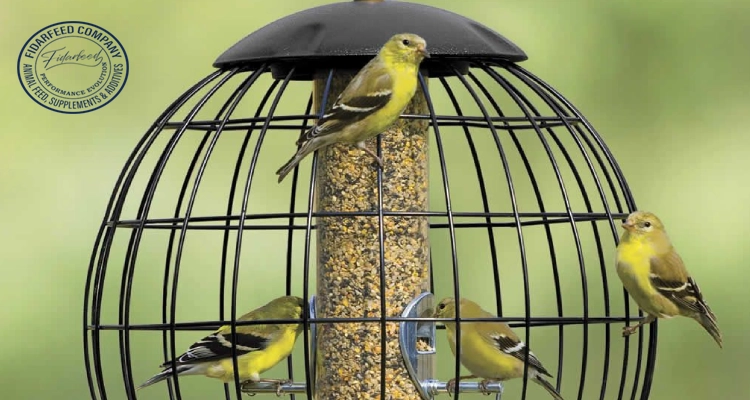
Common Health Problems in Caged Birds—and How Probiotics Help
Caged birds can suffer from a range of preventable health issues, many of which are linked to poor gut health:
-
Chronic diarrhea
-
Respiratory infections
-
Feather plucking
Learn more about: Why Is My Bird Plucking Its Feathers? Top Mental and Health Reasons
-
Weight loss or poor appetite
-
Lethargy or behavioral changes
Probiotics help by promoting a healthy balance of gut microbes, which suppresses the growth of harmful bacteria like E. coli and Salmonella. Birds with a strong gut environment are more resistant to these infections. Moreover, because stress is a major factor in captivity, probiotics help reduce stress-related inflammation and its impact on the digestive and immune systems.
Choosing the Right Probiotics for Your Birds
Not all probiotics are created equal. Some are developed specifically for poultry or humans and may not benefit birds as intended. When selecting a probiotic, look for:
-
Bird-specific formulations: Products designed for parrots, finches, canaries, etc.
-
Multi-strain blends: A mix of Lactobacillus, Bifidobacterium, and Enterococcus strains often delivers better results.
-
Shelf stability: Some probiotics need refrigeration, while others come in freeze-dried powder or pellet form.
Learn more about: Stress in Pet Birds: A Comprehensive Guide to Causes, Prevention, and Treatment
Brands that are veterinarian-recommended or backed by avian nutrition studies are usually the safest bet. Always check labels for live culture counts and expiration dates.
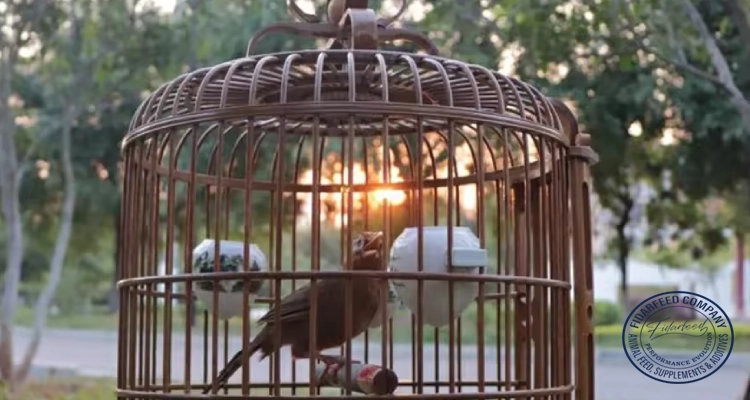
How to Introduce Probiotics to Your Bird’s Diet Safely
Adding probiotics doesn’t require a complicated process. Start small:
-
Mix into feed – Powdered probiotics can be sprinkled over seeds, pellets, or soft food.
-
Dissolve in drinking water – Ensure the water is changed daily and kept clean.
-
Use commercial supplements – These often come with precise dosing instructions.
Learn more about: Creating the Perfect Habitat for Breeding Pet Birds
Start with a low dose and monitor your bird’s reaction over several days. If you notice improved droppings, energy, and appetite, you’re on the right track.
Natural Sources of Probiotics for Birds: Are They Enough?
Some bird owners wonder if natural foods like fermented seeds, yogurt, or apple cider vinegar are enough to supply probiotics. While these foods may offer some beneficial bacteria, they don’t provide the targeted strains or concentrations birds need to see real health improvements.
Learn more about: Want a Healthy Pet Bird? Try Probiotics
Also, dairy products like yogurt can be problematic for many bird species due to lactose intolerance. Commercial probiotic supplements are safer and more effective for long-term use.
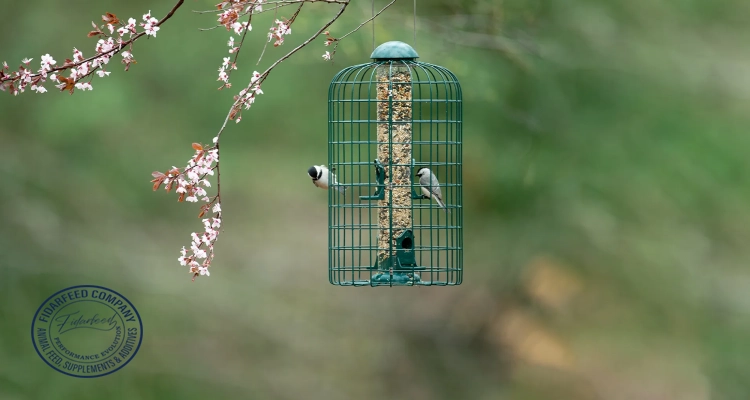
Probiotics and Breeding Success: A Game-Changer for Bird Breeders
For breeders, probiotics can be a powerful ally. Birds in breeding programs face added stress, increased nutritional demands, and a higher risk of illness due to close quarters and nesting behavior.
Probiotics can:
-
Improve reproductive health and hormone balance
-
Boost fertility rates in both males and females
Learn more about: Home Breeding Success: 10 Expert Tips for Cockatiel Care
-
Increase hatchability and chick survival
-
Help breeding pairs recover faster between cycles
Breeders of cockatiels and lovebirds have reported higher clutch success rates and more active, alert chicks when probiotics were introduced before and during breeding seasons.
How Often Should You Give Probiotics to Caged Birds?
Dosage and frequency depend on the bird species, age, health status, and environmental conditions. However, general guidelines are:
-
Daily during illness, breeding, or stress
-
2–3 times per week for maintenance
-
More frequently during molting or dietary changes
Learn more about: Product
Consult with an avian vet for personalized advice, especially if you’re managing a large flock or high-value birds.

Signs That Your Bird Needs Probiotics Now
Watch for these red flags:
-
Runny, discolored droppings
-
Dull or patchy feathers
-
Weight loss without a dietary change
-
Increased aggression or withdrawal
-
Recurrent infections
These may indicate a microbial imbalance or poor gut health. Introducing probiotics early can prevent minor issues from becoming major health problems.
Common Myths About Probiotic Caged Birds—Busted!
Myth: Probiotics are just a fad.
Truth: Research in both avian and veterinary science supports their use.
Myth: Natural foods are enough.
Truth: Most don’t offer reliable or adequate probiotic strains for birds.
Learn more about: Probiotic Supplements
Myth: Healthy birds don’t need them.
Truth: Probiotics can prevent illness and improve performance—even in healthy birds.
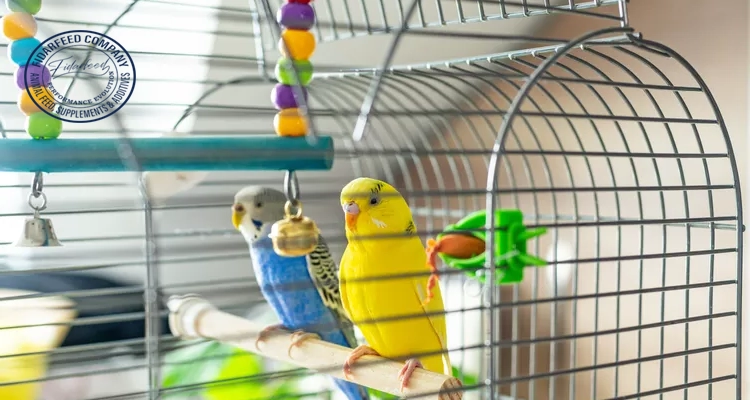
Real Breeders, Real Results: Success Stories with Probiotics
In a recent breeder survey conducted in the U.S., 78% of respondents reported visible improvements in bird health after three weeks of using probiotics. One breeder noted that his previously dull-feathered finches showed vibrant coloration and increased activity. Another shared how adding probiotics to the diet of a stressed African Grey helped reduce feather plucking and aggression.
These success stories are a testament to how small changes can yield powerful results.
Final Thoughts: Make Probiotics a Part of Your Bird Care Routine
Incorporating probiotics into your bird’s daily care is a simple but transformative step. From preventing common health problems to enhancing breeding performance, the benefits are real and well-documented. Whether you’re a beginner or an experienced breeder, adding probiotics can help you raise stronger, happier, and more resilient birds.
We’d love to hear your thoughts! Have you used probiotics with your birds? What changes did you notice? Leave a comment, ask a question, or share your experience with our community. Let’s keep learning and improving together.

